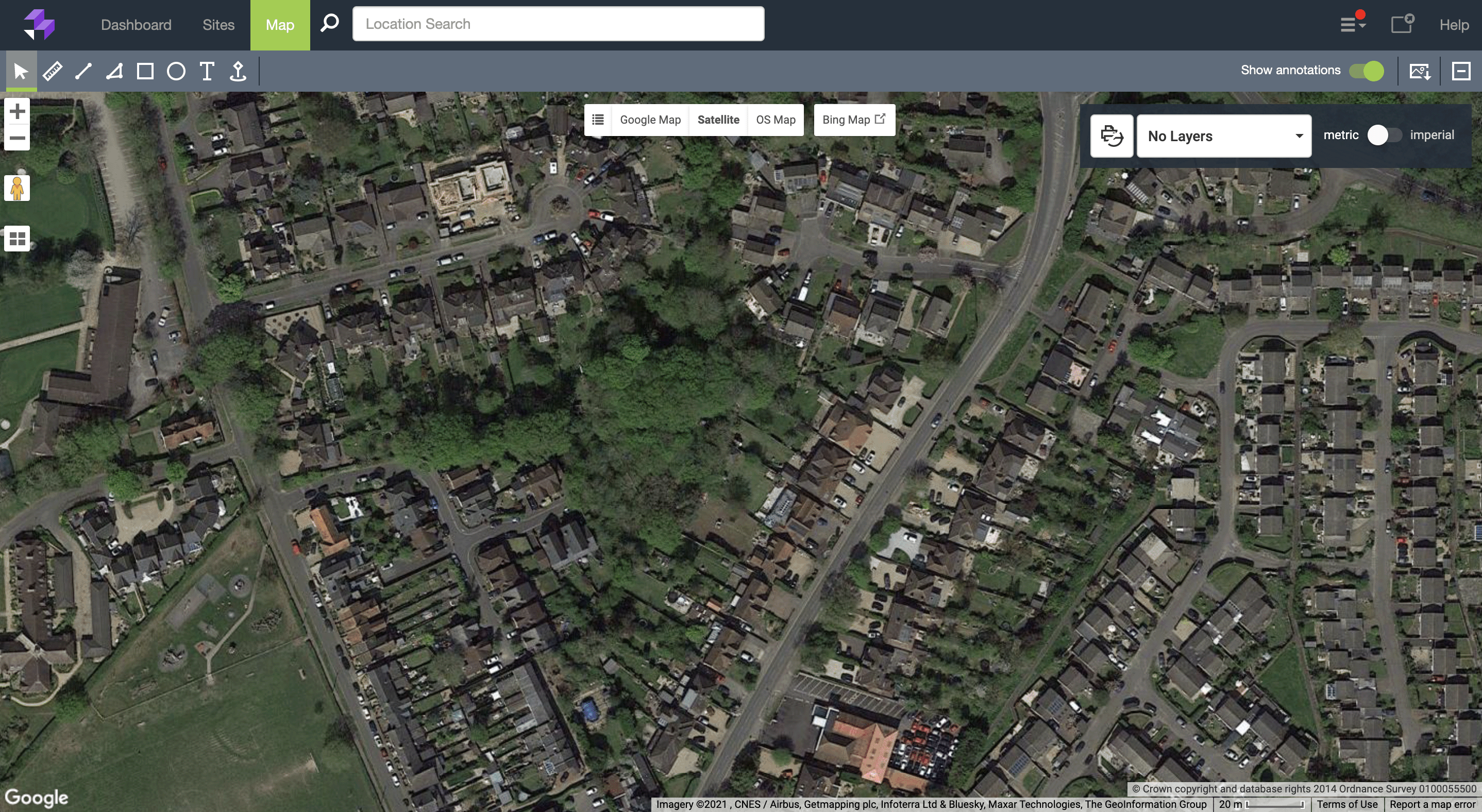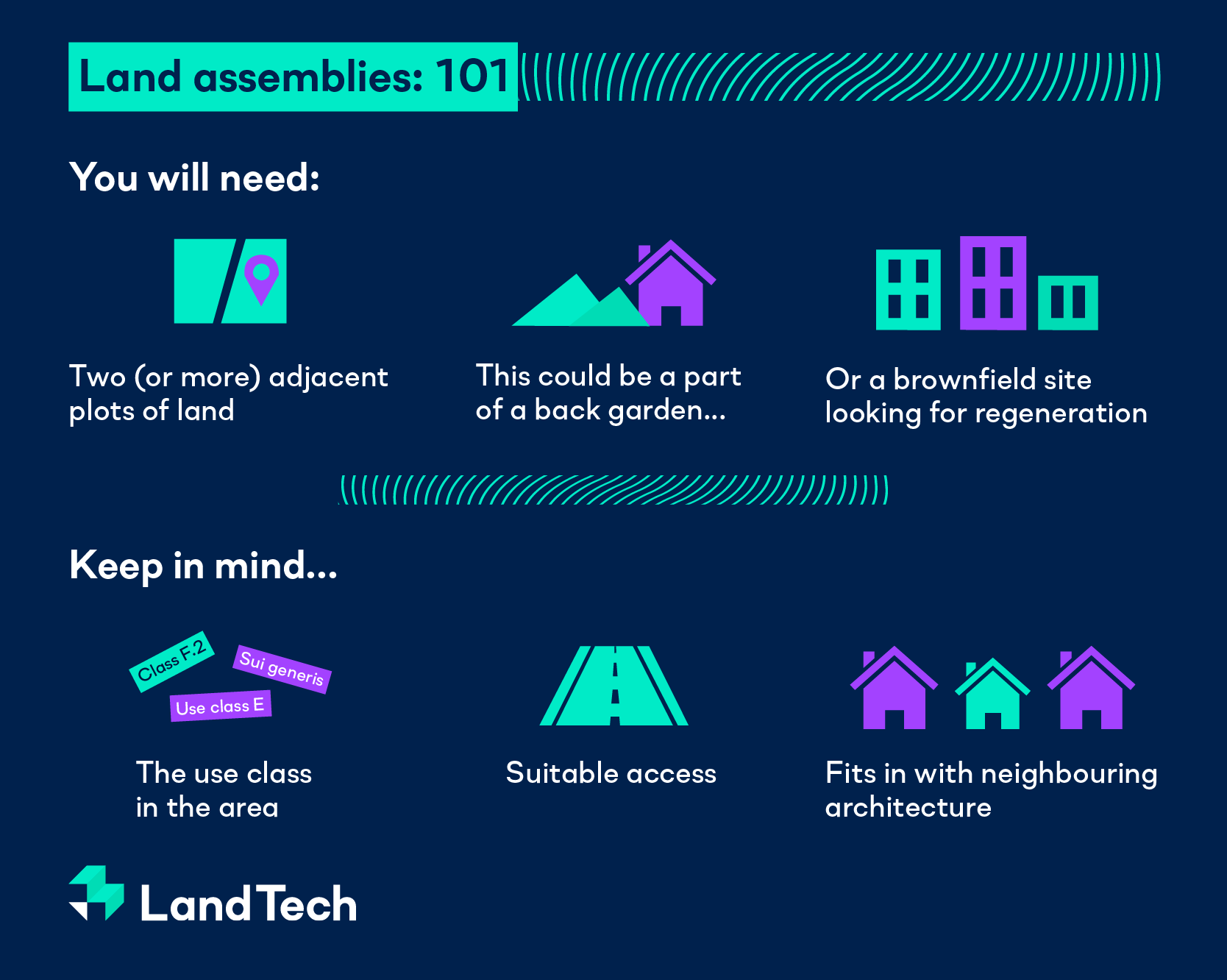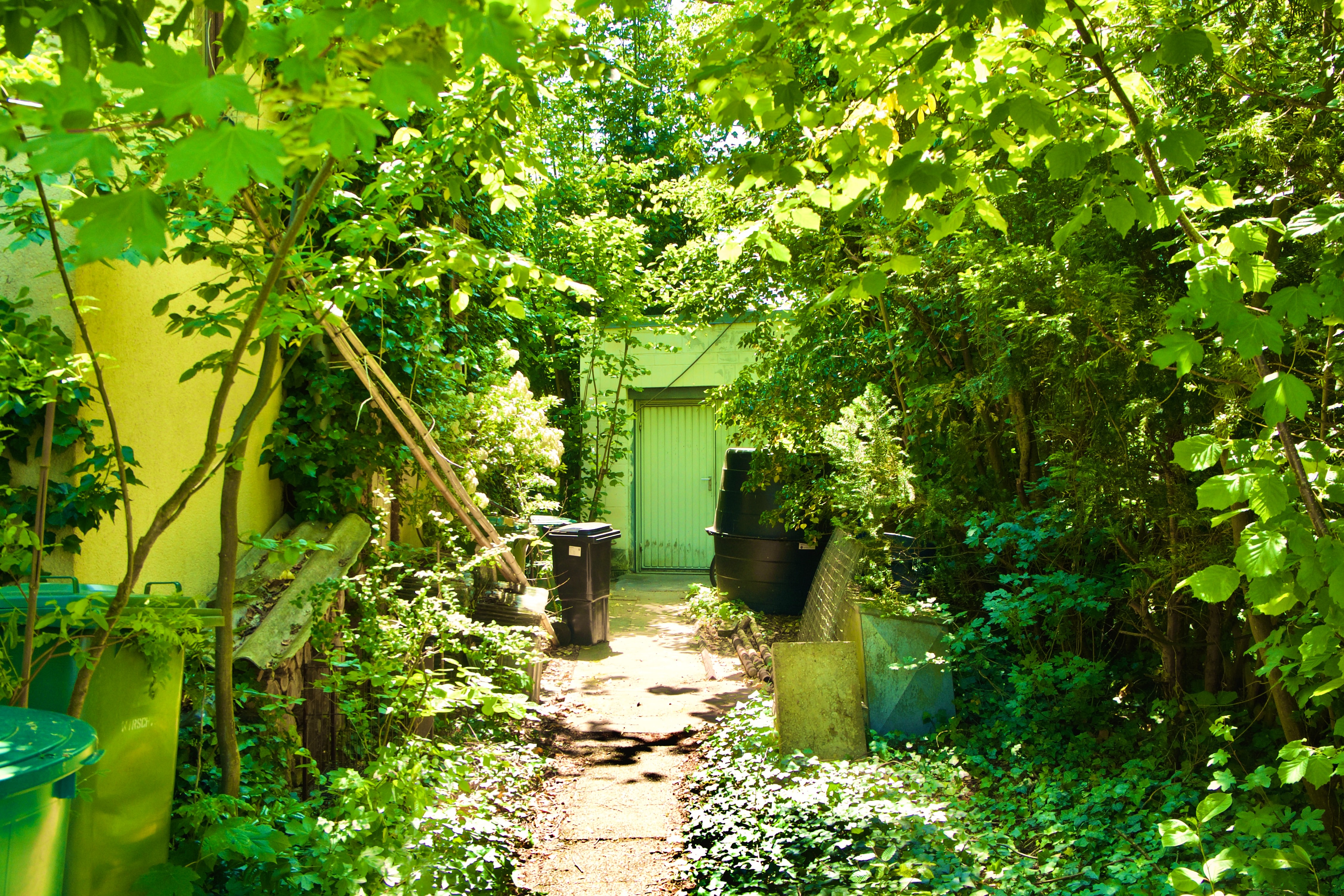Have you ever seen some neighbouring plots (maybe some brownfield sites, or even just some back gardens) that you thought you could combine into an excellent development opportunity?
Congratulations – you've got a prime spot for a land assembly.
Although land assemblies can be fiddly and time-consuming, they can be an excellent way for ambitious developers to make a lot of money.
Completely new to Land Assemblies? Download our free eBook to help you get started
What is a land assembly?
In simple terms, a land assembly is when two or more adjacent parcels of lands are combined to make one new site.
This could be a brownfield site looking for regeneration, or some grassy corners of larger plots in the suburbs.
As individual sites, they might not be worth much. But as a land assembly, these sites often have the potential to generate huge profits.
With LandInsight's land assembly mode, you can join adjacent and non-adjacent sites in a few clicks, saving you tonnes of time. You get accurate site boundaries and can edit and add or remove parcels anytime.

Are land assemblies right for me?
Land assemblies are a great option for all sorts of developers.
They tend to face less competition, which can mean lower prices (and potentially higher margins).
You can continue operating in the area you know best and approach sellers directly with your offer. In this way, it is pretty simple.
If you're used to smaller projects, you might consider buying two neighbouring garden plots. With the average UK garden at around 14m², there's a lot of potential to create a land assembly like this.
But if you normally work on bigger developments, then you might want to group neighbouring brownfield sites to create a larger development. To incentivise house building, the government created the Brownfield Land Release Housing Fund under the £400 million Brownfield Fund. This could be a good sign of lots of potential in this area.

Is it easy to get planning approval for a land assembly?
Getting planning approval is by no means guaranteed, but there's a lot you can do to boost your odds.
- 1) Target the right areas
Many councils are failing their housing targets. If you concentrate your search in the areas falling furthest short, you might find it even easier to get approval.
- 2) Build the right properties
If you're trying something completely new for an area, you're not likely to get your way. But if your proposal is in keeping with the nearby properties, it can be much harder for a planning team to say no.
- 3) Offer the right access
It's not just the properties you build that you have to worry about. You need to ensure adequate access too, (which sometimes means buying up a full existing property just to tear it down and build a road.)
And expensive outlay, sure, but worth it if you get approval for five new properties instead.
- 4) Manage the right stakeholders
When it comes to land assemblies, you've got to keep your eyes on a few more stakeholders.
You've got to keep your sellers keen and make sure the neighbours approve. If they make serious complaints, this might raise the eyebrows of the local authorities.
Planning expert, Peter Higginbottom explained that managing landowner expectations often is the biggest hurdle to getting planning approval, so don't underestimate them.
But if your application is strong, realistic and aligns with local policy, then these complications shouldn't get in the way of your application.

Is it possible to organise a land assembly in urban areas?
It's difficult to find completely unused land in urban areas. That's why land assemblies are a great option if you normally work in urban spaces.
Why? Well, all you need is land that is under-used.
Maybe you've seen a few oddly shaped gardens. Or a vacant brownfield sites, like an old pub or an empty warehouse. You just need adjacent parcels and you're good to go.
Space might be scarce in urban spaces, but you might know places like this in your patch where there's scope for development. You might even be the only person to spot it...
If you want to learn more about sourcing back-garden opportunities, we made a video that shows how you might go about doing so.
Or, with our land assembly mode, you can spot land assembly opportunities in urban areas and join them in a matter of seconds - making your life easier.
Will there be less competition for land assemblies?
Thankfully, yes.
Since you'll probably be looking for off-market land, it is less likely that there will be others looking at the same site.
This can be a big stress buster. And it makes it easier to find a site at a good price.
It can be difficult to buy someone's precious family home where sellers are emotionally attached. Plus, they've probably got their eyes on the local property prices too.
But people don't tend to track the value of land in the same way they do homes. And they're a lot less likely to be attached to that bit at the end of their back garden. They might find the prospect of a simple sale and a nice payment into their bank account pretty appealing.

How long does it take to complete a land assembly deal?
Negotiating a land assembly deal can be a difficult and time-consuming process.
There are more stages than with single plot projects
- You're looking for multiple sites close together
- Then, you've got to reach out to each seller and negotiate the deals
- Then there's applying for planning before you can start organising the build...
If one of the sellers backs out, it's back to square one.
But that difficulty is what makes it so rewarding (emotionally, and far more importantly, financially).
It takes a lot of skill and expertise to make it happen. For some people, that's off-putting. But for those with the grit and determination, that just makes the final prize all the more profitable.
To learn more about how to start a successful land assembly project, check out our ebook.



